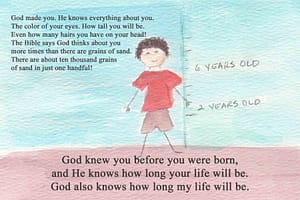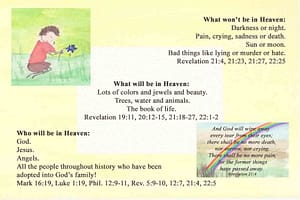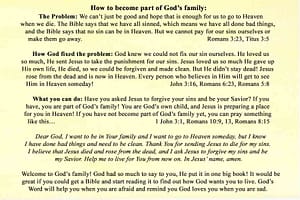It is a major “ouch” moment when you spend time creating a resource, translating it, and formatting it for use, only to find out that another cross-cultural worker in the country already did something similar. Though churches across America often use the same VBS material found on the internet, or the same Bible curriculum or take-home papers, global workers often feel they need to create new content specifically for their area or work. There are reasons for this perspective, including:
- Copyright—A cross-cultural worker cannot just order a VBS curriculum, translate it, and mass-distribute it.
- Money—To buy copyrighted material or copies of resources for ministry gets very expensive, especially with shipping costs.
- Language—Even if the preceding two considerations were not a problem, the resources would still be in English.
- Culture—What is a powerful message to one culture may be a stumbling-block in another.
Sometimes what works back home just does not work well on the field. I remember when I lived in a restricted country in Asia. A man came from America and spoke in our international church. He gave an illustration about a tomato-and-mayo sandwich that left the audience completely baffled. I watched our congregation, people from 13 different countries, and thought about the facts: they did not know what a sandwich was, or what mayo was, and they would never hold a sandwich in their left hand, as the speaker was indicating. How would an interpreter communicate such a thing?
For all of the above reasons, it is easy to decide that each cross-cultural worker must create new resources for their work. However, sometimes we invest time, money, and effort unnecessarily. For example, in another country where we served under an independent mission board, we discovered that the Southern Baptists http://www.imb.org/main/default.asp had a wealth of resources already in the language of our target people. The New Tribes Mission http://usa.ntm.org/ also had a great Bible-story curriculum in the language. We could have spent years developing what was already there.
How can you avoid reinventing the wheel in your ministry?
- Find out if there are other cross-cultural workers in your area. Ask them what they have learned about the culture, the area, and the people. We wished we had asked about good rent prices before we made an agreement that had us paying an exorbitant amount, for the culture in which we were living.
- Ask about what work is being done in that area already; see if you can overlap ministries. For example, if you are called to work with children and another group has already developed an excellent Bible club, see if you can join in with and expand that work rather than starting from scratch.
- Find resources already in the language. Some places to check for in-languages resources would include The Jesus Film http://www.jesusfilm.org/, Samaritan’s Purse http://www.samaritanspurse.org/, New Tribes Mission, the Southern Baptists, Wycliffe http://www.wycliffe.org/, and Source of Light http://www.sourcelight.org/.
- Ask for free resources. If you discover a book or curriculum that would be perfect for your work, send an e-mail to the publisher and ask for it! All they can say is no, and many would be willing to donate the rights for you to translate the work and use it.
I say all of the above because we ourselves loved to help cross-cultural workers with all four categories. We loved taking new people under our wings and helping them avoid the pitfalls we tripped over when first arriving. We loved introducing them to work being done and how they could get involved, as well as helping them find resources. Do not feel you are bothering seasoned cross-cultural workers by asking for advice and help.
During my cross-cultural years and in the years since my husband and I had to leave the field due to my health problems, I personally have loved providing materials for cross-cultural workers, free, to translate and use. These have included Bible-story curricula for children in easy English for translation (for AWANA clubs https://awana.org/, to be specific), a Christmas play that gives the Gospel but is not expensive to do, stories for children, curricula for women and teen camps, and more.
In fact, if you could use any of the above, drop me a note! Collaboration is a good thing, a biblical example of God’s children working together for His sake. Whoever invented the wheel did a great thing, but those who reinvented the wheel could have used their expertise and effort in a better direction, perhaps inventing something great to go with the wheel instead!
©2014 Thrive.
Question to consider: Kimberly Rae is offering her new book “When I’m With Jesus–for Any Child with a Loved One in Heaven” free to women serving cross-culturally. It is beautifully illustrated, full of hope, and gives the Gospel message to children at the end. She has had more than one cross-cultural worker tell her it would be a good tool internationally. One is already planning to translate it into the local language and use it in ministry!
Below are a few of the pages from the book. If you would like this free resource, please contact Kimberly and let her know!













